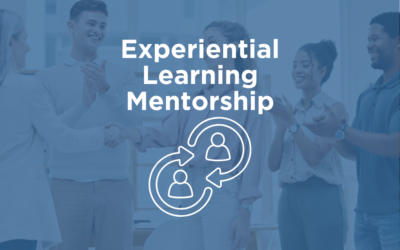
In the aftermath of the 2008 global crash, more and more MBA programs are offering ways for their students to gain exposure to real business problems as part of their MBA degree.
The delivery models vary greatly across schools, ranging from required and elective courses and student-driven projects. These experiences have many different names– lab classes, immersions, consulting projects and integrative experiences, just to name a few. But they all offer the same benefits to students – a chance to apply and test classroom theories to a current business problem, often in an international or startup environment. The potential to have impact on the host company, and an opportunity to broaden students’ worldviews. Some MBAs even find their post-graduation career path in this process.
As Candace Maxian, Assistant Director for Corporate Relations at Cornell Johnson School of Management, states, “[s]tudents find that the experience gained from working on a real, live business challenge not only broadened their horizons but helped them in gaining summer internships as well interviewing and obtaining full-time positions.” This helps students be more competitive in the job market as they learn how to discuss a current business challenge and potential solutions through direct interaction with industry.
Greg Ruf, former CEO of MBA Focus and now a partner at the executive development firm RobertGregory Partners, shares similar views on the value of experiential learning to MBAs: “Experiential learning not only gives MBA students business experience by solving current business problems, but also lets them get to know multiple companies while earning their MBA.”
Helping business schools develop relevant experiences for MBAs is of keen interest to industry leaders, which can be seen through the increase in the number of companies partnering with schools. According to Andrew Allen, Director of Illinois Business Consulting (IBC) at the University of Indiana Urbana-Champaign, “More and more, companies want talent who can do and not just think or repeat theories. Despite unemployment numbers, companies are still short on finding the talent they need and the competition for top talent is fierce. These trends have led companies to find new ways to both prepare and engage with students. One of these ways is experiential learning.” Demand for experiential learning has skyrocketed at schools like NYU Stern, UMichigan Ross, and Dartmouth’s Tuck School of Business in the past several years. The most recent elite school to embrace this learning model is Harvard Business School, with their 2012 launch of the FIELD Global Immersion program, a requirement for all 1800 MBA students.
Other schools have offered project-based learning for many years. For example, MIT Sloan has offered Action Learning Lab classes since the early 1990s, when the Entrepreneurship Lab (E-Lab) course was first offered. The course provided teams of students an opportunity to engage in active, on-site experiences with high-tech startups in the Boston area.
As business schools continue to expand their course offerings and deepen their relationships with industry, new tools are emerging as well to support these efforts. At EduSourced, we help support these programs–and their corporate clients–by providing a single repository for all project activity. And as experiential learning continues to grow–and all signs indicate that it will grow–we plan to grow our own program as well to best fit these projects’ needs. By doing that, we hope that together we can change the higher education landscape and help universities better prepare students for the job market.



